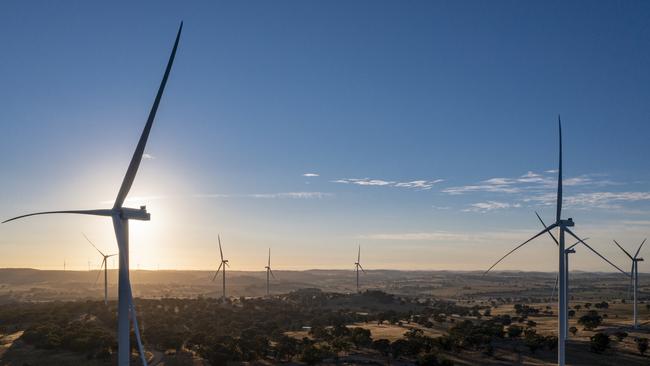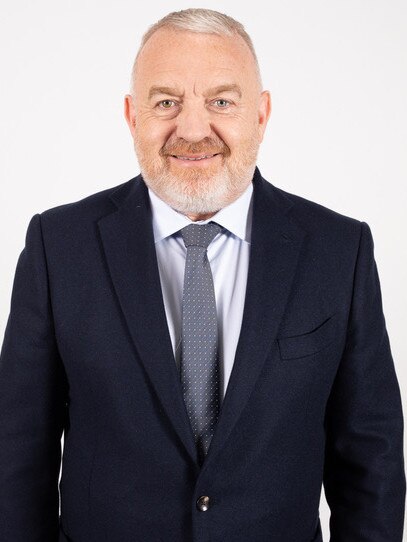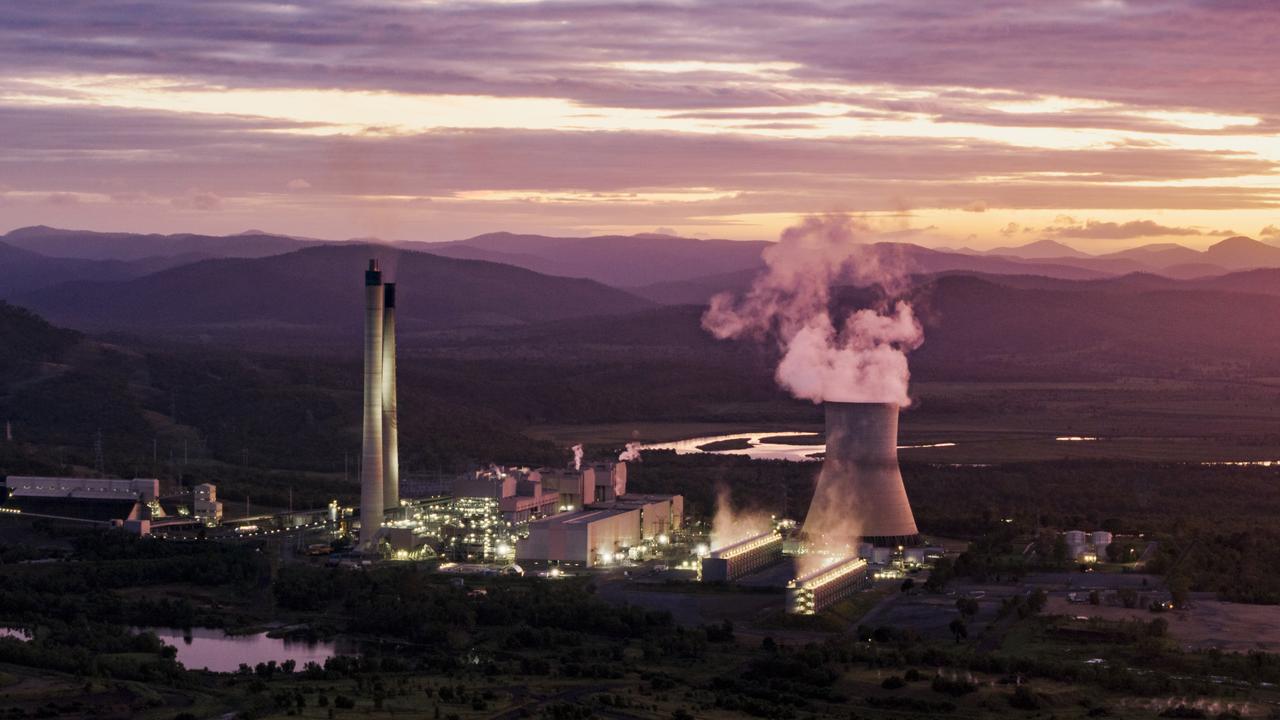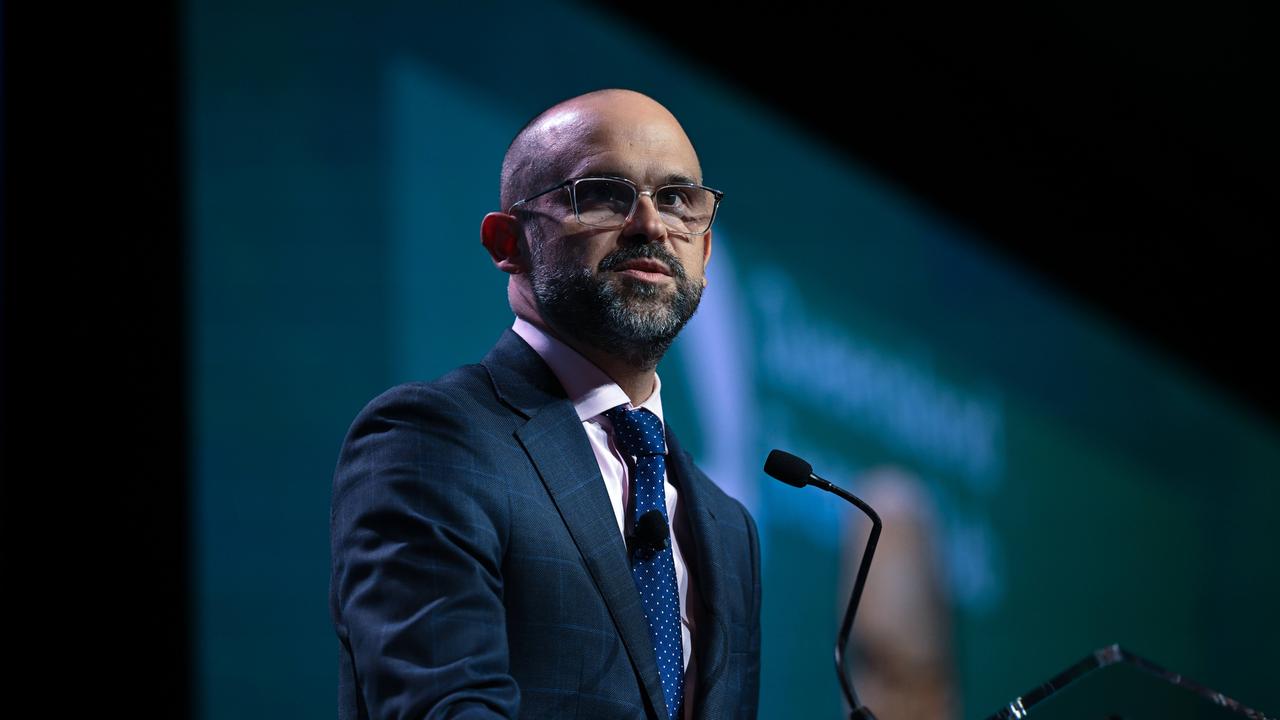Ex-Origin executive Dennis Barnes given Snowy Hydro top job
Energy industry veteran Dennis Barnes has been confirmed as the new chief executive of federal government-owned power company Snowy Hydro.

The federal government-owned Snowy Hydro has appointed Dennis Barnes as its chief executive, with the former Origin Energy executive handed the job of overseeing the power company’s giant hydro expansion.
As revealed by The Australian on Wednesday, Mr Barnes will replace acting boss Roger Whitby, who will return to his former role as chief operating officer.
Snowy Hydro chair David Knox is expected to have his role extended for a multi-year term in the coming weeks along with several other directors including ex-Origin executive Karen Moses.
The appointment of the next Snowy Hydro boss had been closely watched after the abrupt exit of former chief executive Paul Broad in August following a scrap with recently installed Energy Minister Chris Bowen.
The departure of Mr Broad led to speculation he had been dumped from his role after he expressed doubts over Labor’s election pledge to convert the Hunter Valley gas plant in NSW to a 100 per cent green-hydrogen generator by the end of the decade.
Among the challenges faced by Mr Barnes are cost blowouts and delay pressures at the company’s Snowy 2.0 expansion.
The scheme is a year behind schedule and the official budget has jumped by $800m to $5.9bn, the latest crunch for an energy project deemed critical to replace coal in the power grid.
Drama has also engulfed the project after one of its main contractors, Clough, collapsed under severe financial strain. Its partner, Webuild, has effectively already taken over Clough’s role in the Snowy 2.0 contract, and the bulk of the blue-collar workers are employed and now paid by the joint venture partnership.

Mr Bowen said both Snowy 2.0 and the Hunter power project were critical energy developments for the nation.
“The work of Snowy Hydro over the next few years is crucial to Australia’s efforts to reach net zero by 2050 and its operations and strategic direction align with Mr Barnes’ previous experience leading development of renewable energy projects,” he said. “He’ll be tasked with overseeing key projects, such as Snowy 2.0, its connection with HumeLink and the Hunter Power Project.
“Snowy Hydro operations are crucial to Australia’s transformation to a cleaner, cheaper and more secure energy system.”
A tough operating environment also awaits Snowy’s new leader. Snowy’s annual underlying profit after tax fell 30 per cent to $189m, from $271m in 2021, with the company blaming an extreme winter that featured price caps and the suspension of the electricity market.
Mr Barnes, who will take up his new role on February 1, is a former Origin Energy executive.
He spent nine years at dual-listed, New Zealand-focused power company Contact Energy, which involved construction of the Te Mihi geothermal power station, development of the Tauhara field and the introduction of the Ahuroa gas storage facility and Stratford peaking plant.
Contact Energy runs the Clyde and Roxburgh hydro plants on New Zealand’s South Island with combined capacity of almost 800 megawatts.
The Australasian executive previously managed wholesale markets at Origin Energy, which sold its 53 per cent stake in Contact Energy in 2015 for $1.8bn.
Mr Barnes in June last year also became an independent director at Tilt Renewables, the clean energy company bought for $3bn by the AGL Energy-backed Powering Australian Renewables venture.
Mr Barnes was an unexpected choice for the position, with industry sources late last year suggesting former APA Group chief executive Rob Wheals was one of the leading candidates, along with Australian Energy Regulator chair Clare Savage. However, sources said he was well qualified for the role and had a thorough understanding of the Snowy business and energy markets more generally.
Former EnergyAustralia chief operating officer Liz Westcott was also believed to have been under consideration, along with interim Snowy boss Roger Whitby. The Australian reported last month that both were no longer in contention.
Snowy has also lost a number of key executives following the exit of Mr Broad in August.
Among the departures are group governance, risk and compliance executive Praveena Karunaharan, and corporate affairs boss Cesilia Kim. The Australian understands the company’s commercial director, Dean Thompson, has also recently left.
Ratings agency S&P last month warned of a potential downgrade to Snowy Hydro’s BBB+ credit rating over potential for further blowouts to the cost of the $5.9bn Snowy 2.0 expansion and its Kurri Kurri gas plant in the Hunter Valley, and as a result of “volatile” energy markets.
S&P said it expected the 600-megawatt Hunter Power Project “to face cost overruns, and commissioning may be delayed because of wet weather”.
Kurri Kurri is facing delays due to wet weather and flooding in NSW, and the ongoing struggle between the federal government and Snowy management over demands that the generator be equipped to be capable of using green hydrogen when supply becomes available.
Snowy Hydro is also the country’s fourth-largest energy retailer, with one million power customers through its Red and Lumo brands.




To join the conversation, please log in. Don't have an account? Register
Join the conversation, you are commenting as Logout